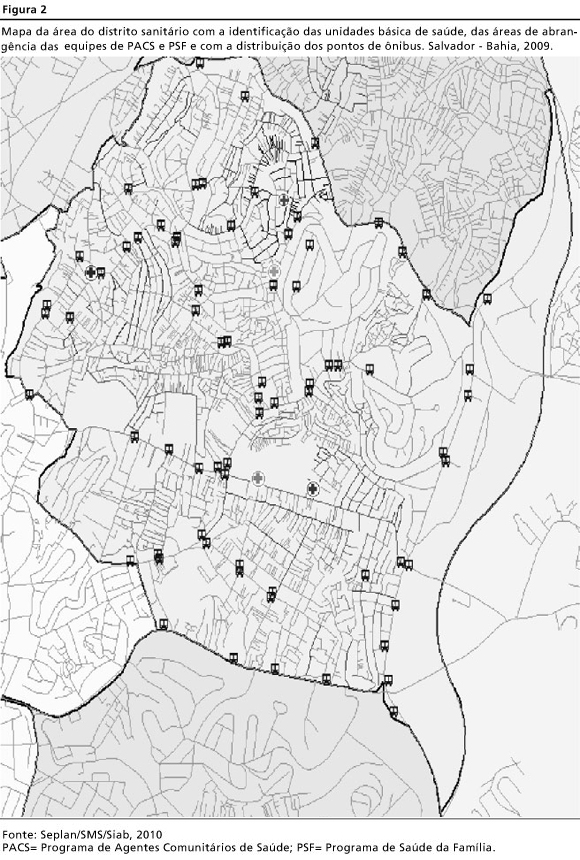OBJECTIVES: to assess the geographical accessibility of primary health care for the population served by the Community Health Agents Program (PACS) and the Family Health Program (PSF) in one sanitary district in the city of Salvador, Brazil. METHODS: a evaluative cross-sectional study was carried out. The data were collected using interviews with health workers from the eleven PACS and PSF teams. Analysis of the data took two factors into account: access of the population and the logic of territorialization. RESULTS: the district has a relatively rugged landscape and all the teams reported the existence of geographical barriers in the area, in particular steps and steep hills. There was no difference in accessibility between the PACS and the PSF. The process of territorialization was unrelated to the concept of territory as a process. Some areas covered by the teams were located some distance from the UBS and this constituted a significant obstacle to access. CONCLUSIONS: the implantation of the PACS/PSF strategy in the district and the model of territorialization were not in line with the principles that should guide primary health care, resulting in geographical restrictions on access for the population served. It is recommended that the current territorial design be reviewed to ensure that it is more line with PSF guidelines and to enable better access to primary care.
Health evaluation; Primary health care; Family Health Program




